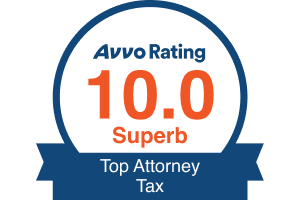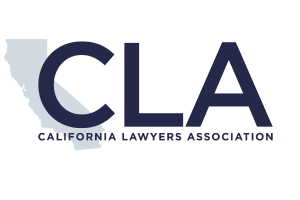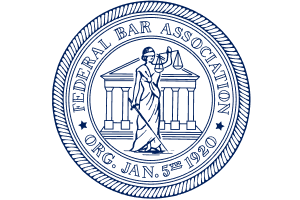Getting Results
CDTFA Dual Determination Interview Guide
CDTFA Dual Determination Assessments: A Tax lawyers Guide to Sales Tax Interview Questions
The California Department of Tax and Fee Administration (CDTFA) oversees the collection of sales and use taxes in California, imposing strict compliance requirements on businesses. When a corporation fails to remit collected sales taxes, the CDTFA may pursue a dual determination assessment, holding responsible individuals personally liable for the unpaid taxes, interest, and penalties under California Revenue and Taxation Code § 6829. This process, akin to the IRS’s Trust Fund Recovery Penalty (TFRP), targets individuals who had control over or supervised the payment of sales taxes but willfully failed to comply. The CDTFA conducts interviews, often using a structured questionnaire similar to IRS Form 4180, to identify responsible persons and assess their liability. Our tax lawyers provide a detailed analysis of the CDTFA interview process, the key questions asked, guidance for preparation, and the legal implications of responses.
Understanding the CDTFA Dual Determination Sales Tax Assessment
The CDTFA dual determination for sales tax assessment is a mechanism to hold individuals personally liable for a corporation’s unpaid sales taxes when the business is terminated, dissolved, or abandoned, or when it cannot pay the tax debt. Per Revenue and Taxation Code § 6829, liability applies to any “responsible person” who:
- Had a duty to act for the corporation in complying with sales tax obligations.
- Willfully failed to pay or cause the payment of taxes, with “willfulness” defined as a voluntary, conscious, and intentional act, regardless of bad intent.
Unlike corporate tax debts, which are typically limited to the entity, dual determination liabilities are personal, non-dischargeable in bankruptcy, and subject to aggressive collection actions such as bank levies, wage garnishments, or tax liens. The CDTFA’s interview process is critical to determining responsibility and willfulness, making preparation essential to avoid or minimize personal liability.
The CDTFA Interview Process
The CDTFA interview, conducted by a Revenue Auditor or Collections Officer, aims to identify individuals with financial control over the corporation’s tax obligations. While the CDTFA does not publish a specific form equivalent to IRS Form 4180 for sales tax dual determinations, the interview questions closely mirror those used in TFRP assessments, focusing on the individual’s role, authority, and knowledge of unpaid taxes. The process may occur in person, by phone, or via written correspondence, often without prior disclosure of the exact questions. Interviewees are typically asked to affirm the accuracy of their responses, sometimes under penalty of perjury, making legal representation crucial to avoid missteps.
The CDTFA may issue a Notice of Determination post-interview, proposing personal liability. Individuals have 30 days to appeal via a Petition for Redetermination, filed with the CDTFA’s Office of Tax Appeals (OTA), underscoring the need for strategic responses during the interview to build a defensible case.
Key CDTFA Sales Tax Interview Questions
The CDTFA’s interview questions are designed to establish whether the interviewee was a responsible person and acted willfully. Below is a detailed breakdown of the likely questions, their purpose, guidance for answering, and the legal implications, grouped by category. While no official CDTFA form is publicly available, these questions are inferred from IRS Form 4180 parallels, CDTFA audit practices, and legal sources describing dual determination processes. A table summarizes each question’s intent and risks.
Section I: Personal and Business Information
These questions establish the interviewee’s identity and connection to the corporation.
| Question | Purpose | Guidance | Legal Implications |
|---|---|---|---|
| Name, SSN, Address, Phone Numbers | Confirm identity and contact details. | Provide accurate information. Errors can delay communication or raise suspicion. | Inaccurate details may complicate notices or appeals, potentially waiving rights. |
| Job Title or Role in the Corporation | Determine official position (e.g., CEO, CFO, shareholder). | Clearly state your title and actual duties. Avoid exaggerating authority if your role was limited. | Titles like “President” may imply responsibility unless duties are clarified. |
| Ownership Interest (e.g., Percentage of Shares) | Assess ownership stake, if any. | Disclose ownership accurately but clarify if it did not confer control over tax payments. | Ownership, even without control, may increase scrutiny, though non-owners can also be liable. |
Guidance: Be truthful and precise. If your role was clerical or lacked financial authority, emphasize this with supporting evidence (e.g., job descriptions). Non-shareholders, such as controllers or CFOs, can still face liability, so clarify limited duties.
Legal Implications: Providing incorrect personal information can lead to procedural issues, such as undelivered Notices of Determination, which may limit appeal rights. Ownership or a high-ranking title can suggest responsibility, but the CDTFA must prove actual control.
Section II: Financial and Tax Responsibilities
This section probes the interviewee’s involvement in financial decision-making and tax compliance, central to establishing responsibility.
| Question | Purpose | Guidance | Legal Implications |
|---|---|---|---|
| Did you determine financial policy or prioritize payments? | Assess control over budgets or creditor payments. | If you followed directives, state this explicitly. Provide bylaws or resolutions limiting your authority. | Admitting to setting policy suggests responsibility, increasing liability risk. |
| Did you authorize or sign checks (e.g., for vendors or taxes)? | Verify authority to disburse funds. | Distinguish between routine signing and discretionary control. Provide check-signing logs if possible. | Check-signing authority is a strong indicator of responsibility. |
| Did you open, close, or manage bank accounts? | Determine control over banking operations. | Clarify if you acted under orders or had no independent authority. | Managing accounts implies financial oversight, a key responsibility factor. |
| Did you prepare, review, or file sales tax returns? | Assess involvement in tax compliance. | If your role was clerical (e.g., data entry), emphasize this. Provide evidence of oversight by others. | Preparing or filing returns suggests knowledge of tax obligations, critical for willfulness. |
| Did you authorize or make sales tax payments to the CDTFA? | Check if you handled tax remittances. | If you made payments under direction, clarify lack of decision-making power. | Authorizing payments links directly to tax duties, supporting responsibility. |
| Did you hire or fire employees, especially those handling taxes? | Evaluate broader managerial authority. | Clarify if hiring/firing was unrelated to tax functions. | Broad authority may imply control over tax compliance processes. |
| Did you supervise or direct employees responsible for tax filings? | Determine oversight of tax-related staff. | If you had no supervisory role, state this clearly. Provide organizational charts if available. | Supervision of tax staff strengthens the case for responsibility. |
Guidance:
- Be Specific and Documented: Answer honestly but avoid broad admissions. For example, if you signed checks but only as directed, provide emails or memos proving this. Corporate records, such as signature cards or board minutes, can demonstrate limited authority.
- Limit Scope of Duties: Emphasize if your role was administrative or if tax duties were delegated to others (e.g., a third-party accountant). Avoid speculating about responsibilities outside your knowledge.
- Consult Counsel: A tax attorney can help frame responses to minimize liability, especially for questions about financial control or tax filings.
Legal Implications:
- Responsibility: The CDTFA considers anyone with “authority and control over funds” as potentially responsible, including officers, shareholders, or employees. Answering “yes” to questions about check-signing, bank management, or tax filings increases liability risk.
- Willfulness: Admitting to prioritizing payments to vendors over the CDTFA while aware of unpaid taxes can establish willfulness. For example, paying suppliers to keep a business operational, as noted in some CDTFA cases, may be deemed a voluntary act.
Section III: Knowledge of Unpaid Sales Taxes CDTFA
These questions focus on when the interviewee learned of the tax delinquency and their subsequent actions, critical for proving willfulness.
| Question | Purpose | Guidance | Legal Implications |
|---|---|---|---|
| When did you become aware of unpaid sales taxes? | Establish the timeline of knowledge. | Provide exact dates and context (e.g., notified by an auditor or superior). If unaware, state this with supporting evidence. | Knowledge during the tax period strengthens the willfulness case. |
| What actions did you take upon learning of the delinquency? | Assess efforts to address the unpaid taxes. | Highlight attempts to pay, escalate, or seek solutions (e.g., contacting the CDTFA). Document these efforts. | Inaction or paying other creditors after awareness suggests willfulness. |
| Were you involved in discussions about unpaid taxes with other officers or shareholders? | Identify who else knew of the delinquency. | Focus on your own role and avoid implicating others unless necessary. | Naming others may expand the investigation but doesn’t necessarily reduce your liability. |
Guidance:
- Establish a Timeline: If you learned of unpaid taxes after the relevant tax periods or after leaving the company, emphasize this to limit liability. Provide correspondence or meeting notes to support your timeline.
- Document Mitigation: If you took steps to address the delinquency (e.g., proposing payment plans), provide evidence to counter willfulness claims.
- Avoid Broad Admissions: Statements like “we all knew” can complicate the investigation. Focus on your specific knowledge and actions.
Legal Implications:
- Willfulness Standard: Willfulness under § 6829 requires a voluntary, conscious, and intentional failure to pay, even without malicious intent. Paying other creditors after awareness, as noted in Decorative Carpets, Inc. v. State Board of Equalization (1962), can suffice for liability.
- Statute of Limitations: The CDTFA must issue a dual determination within three years of the last day of the calendar month following the quarterly period when it learns of the corporation’s termination or dissolution, or within eight years of the tax liability, whichever is earlier. Awareness timeline affects this deadline.
Section IV: Third-Party Involvement
If the corporation used a third-party accountant or payroll service, these questions assess their role and the interviewee’s oversight.
| Question | Purpose | Guidance | Legal Implications |
|---|---|---|---|
| Did the corporation use a third-party accountant or service for tax filings? | Identify reliance on external providers. | Provide the provider’s name, contract, and scope of duties. Clarify your oversight, if any. | Reliance on a provider may reduce willfulness if you reasonably believed taxes were paid. |
| Were you aware of the provider’s failure to remit taxes? | Assess knowledge of third-party errors. | If unaware, state this and provide communications showing reliance. If aware, explain actions taken. | Continuing to use a failing provider after awareness may indicate willfulness. |
Guidance:
- Document Reliance: Provide contracts or emails showing the third-party’s responsibility for tax filings. If you relied on their expertise, emphasize reasonable due diligence.
- Clarify Oversight: If you had no role in monitoring the provider, state this to avoid being deemed responsible for their failures.
Legal Implications:
- Shared Liability: The CDTFA can assess liability against both corporate individuals and third-party providers. Your role in selecting or overseeing the provider affects liability.
- Reasonable Reliance: Demonstrating good-faith reliance on a competent third party can mitigate willfulness, though it does not absolve responsibility if you had control over funds.
Strategies for 6829 Dual Determination Interview with CDTFA
- Engage a Tax Attorney: A tax lawyer experienced in CDTFA matters can:
- Prepare you for interview questions, ensuring responses align with your defense.
- Attend the interview to clarify questions and prevent misinterpretations.
- File a timely Petition for Redetermination if a Notice of Determination is issued.
- Negotiate settlements through the CDTFA’s Settlement Program.
- Gather Documentation: Collect:
- Corporate bylaws or operating agreements limiting your authority.
- Bank signature cards showing who controlled accounts.
- Emails or memos proving you lacked decision-making power or followed orders.
- Records of third-party agreements or attempts to pay taxes.
- Review Responses Carefully: If asked to sign a statement, review it thoroughly for accuracy. Request corrections if responses are misrecorded. Consult your attorney before signing under pressure.
- Appeal Promptly: If the CDTFA issues a Notice of Determination, file a Petition for Redetermination within 30 days, including:
- Evidence of limited authority (e.g., job descriptions, corporate resolutions).
- Proof of third-party reliance or financial constraints.
- Arguments against willfulness, such as lack of knowledge or corrective actions.
- Explore Resolution Options:
- Pay the Corporate Debt: Paying the corporation’s tax debt before assessment can halt the dual determination process.
- Settlement Program: Engage the CDTFA’s Settlement Division to reduce liability, especially if errors are identified in the audit.
- Installment Agreement: Negotiate a payment plan for assessed liabilities to avoid enforced collections.
- Claim for Refund: After paying the assessed amount, file Form CDTFA-101 to seek a refund if you believe the assessment was erroneous.
Common Pitfalls and How to Avoid Them
| Pitfall | Consequence | Avoidance Strategy |
|---|---|---|
| Answering without preparation | Broad or inaccurate responses may imply responsibility or willfulness. | Review likely questions with a tax attorney beforehand. |
| Signing statements without review | Locks in statements supporting liability. | Request time to review and correct errors before signing. |
| Admitting to paying other creditors | Suggests willfulness if taxes were unpaid. | Clarify if payments were directed by others or unavoidable. |
| Missing the 30-day appeal deadline | Waives the right to contest the assessment before collections begin. | File a Petition for Redetermination promptly with supporting evidence. |
| Inadequate records | Increases likelihood of liability due to lack of evidence. | Maintain detailed records of roles, duties, and tax-related actions. |
Sample Case of CDTFA Dual Determination Interview:
Mark, the CFO of a retail chain, signed checks and oversaw vendor payments under the CEO’s direction. During a CDTFA interview, he admitted to knowing sales taxes were unpaid but continued paying suppliers to maintain operations. Without legal counsel, he was interviewed by CDTFA for Dual Determination Interview, and the CDTFA issued a $1,00,000 dual determination against him, citing his check-signing authority and awareness of the delinquency. Had Mark consulted a tax attorney, dual determination defense would have at least considered the following:
- Provided corporate resolutions showing his subordinate role.
- Documented emails urging tax payments, countering willfulness.
- Appealed the dual determination assessment with evidence of limited control.
Consult with a Tax Attorney for Dual Determination
The CDTFA’s dual determination interview is a critical juncture that can lead to significant personal liability for unpaid corporate sales taxes. By understanding the likely questions, preparing thoroughly, and engaging experienced tax counsel, individuals can navigate the process strategically to minimize or avoid liability. The questions focus on establishing responsibility and willfulness, making precise, documented responses essential. Our Sales Tax Attorneys play a pivotal role in guiding clients through preparation, representation, and appeals, leveraging the CDTFA’s Settlement Program or OTA appeals to achieve favorable outcomes.
Contact Us: If you or your business are facing a CDTFA dual determination interview or sales tax assessment, contact our tax lawyers for a consultation. Our experienced attorneys can help you prepare, defend, and resolve your tax issues effectively.
References:
- [California Revenue and Taxation Code § 6829]
- Decorative Carpets, Inc. v. State Board of Equalization, 58 Cal.2d 252 (1962)





















